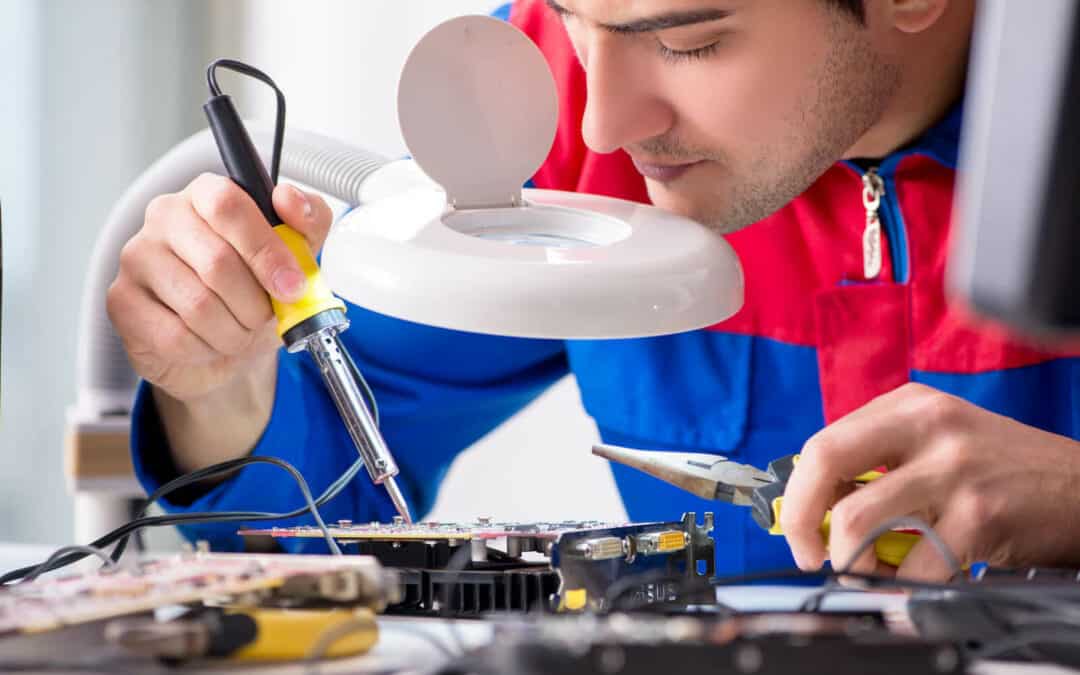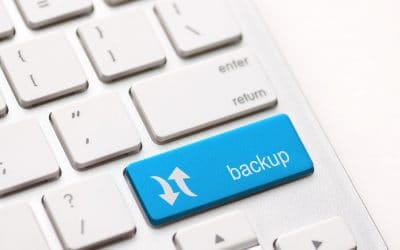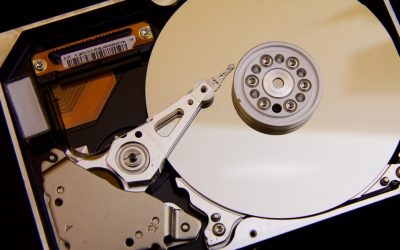A broken hard drive can be a source of distress for any computer user, potentially leading to data loss and system damage if not addressed promptly. This post will explore the tell-tale signs of hard drive breakdown, and provide tips on how to recognize potential issues before they worsen.
We’ll delve into the various unusual noises that may indicate an impending hard drive failure, along with their causes and appropriate steps to take. Furthermore, we’ll discuss boot failures and recognition issues in-depth, highlighting reasons why computers might not recognize your HDDs and possible actions you should consider taking.
Additionally, this post will cover operating system boot errors by distinguishing between logical and physical issues while offering practical guidance on resolving these challenges. We will also examine file corruption in hard drives – its causes, symptoms indicating potential corruption, and recommended actions for dealing with corrupted files.
Lastly, we will help you identify speed issues when accessing your hard drive by discussing factors causing such performance-related concerns and suggesting when professional assistance might be necessary. By understanding these crucial aspects of a broken hard drive’s behavior patterns, you can better protect your precious data from being lost or compromised due to hardware failures.
Table of Contents:
- Common Signs of a Broken Hard Drive
- Dealing with Unusual Noises in Hard Drives
- Addressing Boot Failures and Recognition Issues
- Resolving Operating System Boot Errors
- Understanding File Corruption in Hard Drives
- Identifying Speed Issues in Hard Drive Access
- FAQs in Relation to Broken Hard Drive
- Conclusion
Common Signs of a Broken Hard Drive
Knowing the signs of a broken hard drive is crucial to prevent data loss. Some common symptoms include strange noises, unrecognized drives, boot failures, file corruption, and slow file access. Identifying these early warning signs can help you seek professional assistance before it’s too late.
Unusual Noises from Your Hard Drive
Your computer’s hard drive may produce strange sounds, such as clicking or buzzing noises, if there are mechanical component problems within the device. These sounds could indicate that your hard drive is failing and needs urgent attention. Check out this source for more information.
Computer Not Recognizing the Hard Drive
If your computer fails to recognize your HDD during startup tests on multiple machines, this might be due to an electronic board failure within the device itself. In such cases, it is essential to consult with a reputable data recovery firm.
Operating System Failing to Boot
An “operating system not found” error message indicates either corrupt key files or potential hardware failure within your storage media. To avoid further complications and possible data loss scenarios caused by both logical and physical factors alike, disconnecting affected devices immediately is highly recommended.
File Corruption or “File Not Found” Errors:
- Data becomes inaccessible due to missing fragments in a file.
- Promptly powering off your device and seeking professional help is advised.
Slow File Access
Performance problems may arise if hard drives run low on capacity or encounter mechanical component errors while accessing data. Noticing corrupted files displaying CRC (cyclical redundancy check) error messages calls for immediate action by consulting reputable data recovery firms who can safely transfer critical information without risking further damage.
Dealing with Unusual Noises in Hard Drives
Modern hard drives are designed to operate silently. However, they may produce unusual sounds due to mechanical component failure such as spindle or actuator assembly problems. These sounds could be clicking or buzzing noises that indicate physical damage requiring immediate attention and disconnection from power sources.
Types of Unusual Noises in HDDs
- Clicking: A repetitive clicking sound usually indicates a problem with the read/write head trying to access data on the disk but failing repeatedly.
- Buzzing: This noise can result from a stuck spindle motor, which prevents the platters from spinning at their required speed for proper operation.
- Hissing/Whining: High-pitched hissing or whining noises might suggest an issue with the drive’s bearings or electronic components overheating.
Causes Behind Different Noise Patterns
Different types of hard drive noises often point towards specific issues within your device. For instance, clicking sounds typically signify read/write head failures, while buzzing hints at possible spindle motor malfunctions. In certain situations, these issues can be caused by production flaws or gradual degradation over time. However, external factors like sudden power outages and physical shocks can also contribute to hard drive damage and subsequent noise production.
Steps to Take If You Hear Strange Sounds
- Promptly Shut Down Your Computer: If you notice any unusual noises coming from your hard drive, immediately turn off your machine by holding down its power button until it powers off completely. This helps prevent further damage caused by continuous operation under compromised conditions.
- Disconnect the Power Source: Unplug your computer from its power supply to ensure no electrical current reaches the damaged hard drive, as this could exacerbate existing issues.
- Contact a Professional Data Recovery Service: Avoid attempting DIY repairs or using third-party software that might further compromise your device. Instead, consult with reputable data recovery firms who can safely assess and address the problem without risking additional harm.
In summary, unusual noises in hard drives often signal mechanical component failures requiring immediate attention. By recognizing these sounds early on and taking appropriate action, such as disconnecting affected devices from power sources and seeking expert assistance, you can minimize potential data loss risks while preserving critical information stored within your HDDs.
Hard drives may produce unusual sounds due to mechanical component failure, such as clicking or buzzing noises that indicate physical damage requiring immediate attention and disconnection from power sources. Different types of hard drive noises often point towards specific issues within your device, which can arise due to manufacturing defects or wear-and-tear over time. If you hear strange sounds coming from your hard drive, promptly shut down your computer, disconnect the power source and contact a professional data recovery service to avoid risking additional harm.
Addressing Boot Failures and Recognition Issues
Is your computer failing to recognize your hard drive? Don’t panic. It’s possible your computer isn’t recognizing the HDD; there are solutions.
Reasons why computers don’t recognize HDDs
- Power supply problems: Insufficient power can prevent a hard drive from spinning up correctly. Check that your power cables are securely connected and consider testing with another known working cable or power supply unit (PSU).
- Motherboard malfunctions: Faulty SATA ports or damaged data cables may cause recognition issues. Try connecting the hard drive to a different port or using a new data cable.
- Bios settings: Incorrect BIOS settings could lead to unrecognized drives. Access your system’s BIOS setup menu and ensure that the correct storage mode is selected for your hard drive. Learn how here.
- Firmware corruption: Damaged firmware on the hard drive can result in recognition failures. In such cases, professional assistance from reputable data recovery firms is recommended.
How electronic board failures affect recognition
When there’s damage to essential circuits responsible for controlling communication between the computer and storage media, an electronic board failure occurs. This results in inaccessible files and unrecognizable devices by operating systems – potentially leading towards severe data loss scenarios if not addressed promptly.
What actions should be taken upon encountering this issue
- Power off the computer: Immediately turn off your system to prevent further damage and data loss.
- Inspect connections: Check for loose or damaged cables, as well as faulty power supplies. Replace any defective components if necessary.
- Contact a professional: If you suspect an electronic board failure, seek assistance from a reputable data recovery firm like Wholesale Computers and Technology. They can safely diagnose and repair the issue without risking additional harm to your valuable information.
Don’t let boot failures and hard drive recognition issues catch you off guard. By understanding common causes behind these problems and taking appropriate actions, you can safeguard your critical files against potential threats effectively.
If your computer fails to recognize your hard drive, it could be due to power supply problems, motherboard malfunctions, BIOS settings or firmware corruption. Electronic board failures can also affect recognition and cause severe data loss scenarios if not addressed promptly. To prevent further damage and data loss, turn off the system immediately and seek assistance from a reputable data recovery firm like DriveSavers Data Recovery.
Resolving Operating System Boot Errors
Ugh, the dreaded “operating system not found” error. It’s like your computer is telling you it’s taking a sick day. No need to worry – there’s help available.
Common Boot Errors
- Missing operating system: This error occurs when the BIOS can’t find the necessary files to load the OS, often due to a damaged Master Boot Record (MBR).
- No bootable device found: Your computer may display this message if it can’t detect any connected storage devices with an installed OS.
- Error loading operating system: A corrupted bootloader or partition table could be responsible for this issue, preventing your PC from accessing essential startup information.
Distinguishing between logical and physical issues
To identify whether you’re dealing with a logical or physical problem, try running diagnostic tools like Windows’ built-in CHKDSK utility (source) or third-party software such as CrystalDiskInfo (source). These programs help assess drive health by scanning for bad sectors, file corruption, and other indicators of potential failure. If these tests reveal no issues but you still experience boot errors, consider consulting a professional technician who can perform more advanced diagnostics on your hard drive’s components.
Steps to take when encountering OS boot problems
- Bios settings check: Verify that your BIOS settings are correctly configured to boot from the intended storage device.
- Recovery tools: Use built-in recovery options like Windows’ Startup Repair (source) or macOS Recovery (source) to fix common issues automatically.
- Data backup: If possible, create a backup of your important files using an external storage device or cloud-based service before attempting any further troubleshooting steps.
- Contact professionals: Seek assistance from experienced technicians who can diagnose and repair hardware-related problems without risking data loss. Reputable data recovery firms offer services specifically tailored for this purpose.
In summary, addressing operating system boot errors requires careful assessment of both logical and physical factors affecting your hard drive’s performance. By taking prompt action and seeking professional help when necessary, you can minimize potential damage and recover crucial information safely. Don’t let your computer take a sick day for too long.
When encountering OS boot problems, it’s important to distinguish between logical and physical issues. Use diagnostic tools like CHKDSK or CrystalDiskInfo to assess drive health and verify that BIOS settings are correctly configured to boot from the intended storage device. If necessary, seek assistance from experienced technicians who can diagnose and repair hardware-related problems without risking data loss.
Understanding File Corruption in Hard Drives
File corruption happens when parts of a file go missing, making it impossible to open or access. Power surges, malware attacks, and HDD component failures can all cause this issue. To reduce the likelihood of data loss, it is advisable to switch off your device and seek professional assistance.
Causes of File Corruption
- Power Surges: Sudden electricity spikes can damage hard drive components and corrupt stored data.
- Mechanical Failure: Wear and tear on moving parts within the hard drive may lead to read/write errors that result in file corruption.
- Virus/Malware Attacks: Malicious software can infiltrate your system and directly target specific files or entire directories for destruction.
- User Error: Accidentally overwriting or deleting crucial system files may render them unusable.
Symptoms of Potential File Corruption
If you encounter any of these symptoms while accessing your computer’s storage media, it could be an indication of possible file corruption:
- Error messages such as “file not found” or “access denied.”
- Inability to open specific documents despite having proper permissions and compatible software installed.
It’s important to take file corruption seriously and seek professional help if you suspect your files are corrupted. Don’t risk losing important data.
Identifying Speed Issues in Hard Drive Access
Is your computer taking forever to access files? It could be a sign of hard drive issues. Here are some factors that could be causing the problem:
Disk Fragmentation
- What is it? Over time, your hard drive’s storage space becomes fragmented, leading to slower read and write speeds.
- Solution: Regularly defragmenting the drive can help improve performance.
Mechanical Failure
- What is it? Physical wear and tear of the hard drive components can cause slowdowns when accessing data.
- Solution: If you suspect a mechanical issue, seek professional assistance immediately.
Virus or Malware Infection
- What is it? Malicious software can impact your computer’s overall performance, including slowing down hard drive access times.
- Solution: Installing reliable antivirus software and keeping it up-to-date is crucial for preventing such issues.
Recognizing Signs of Impending Failure
Besides slow performance, there are other warning signs that could indicate an imminent hard drive failure. These include frequent crashes or freezes, unusual noises coming from the device, file corruption or loss of data, and increasing bad sectors on the disk surface. It is vital to address these symptoms promptly by seeking expert advice from a trusted source like a reputable data recovery service provider.
Seeking Professional Assistance for Performance-Related Concerns
Consulting a data recovery expert for persistent speed issues is essential to diagnose the problem and ensure safe data recovery. They will perform an in-depth analysis of your device to determine whether the issue is due to logical or physical factors and provide guidance on how best to recover your valuable data.
Remember that attempting DIY fixes for hard drive problems may cause further damage and potentially lead to permanent data loss. It’s always better to trust experienced professionals when dealing with sensitive information stored on your computer’s storage media.
Is your computer taking forever to access files? It could be a sign of hard drive issues. Factors that could cause the problem include disk fragmentation, mechanical failure, and virus or malware infection. Seek professional assistance immediately if you suspect any of these issues to avoid permanent data loss.
FAQs in Relation to Broken Hard Drive
What happens when a hard drive breaks?
When a hard drive fails, you risk losing your data, experiencing system crashes, and being unable to access your files, so it’s essential to back up your data regularly and seek professional help for data recovery or repair as soon as you notice any signs of failure.
What’s the most common type of hard drive failure?
The most common type of hard drive failure is physical damage caused by wear and tear over time, including head crashes, spindle motor failures, and electronic board malfunctions, which can be prevented with regular maintenance.
Can a broken hard drive be fixed?
In some cases, a broken hard drive can be repaired by professionals who specialize in hard drive recovery, but not all drives are fixable, and success depends on the extent of damage and expertise available.
What causes a hard drive to break?
Hard drives can break due to physical impact, overheating, power surges or failures, manufacturing defects, or age-related wear and tear, so proper handling and regular maintenance are crucial to reduce risks significantly.
For more information on hard drive recovery, check out this source.
Learn how to monitor your PC’s temperature in Windows 10’s Task Manager here.
Conclusion
Is Your Hard Drive Giving Up on You?
A broken hard drive can cause a lot of headaches for computer owners, from strange noises to boot failures and recognition issues.
Don’t ignore the warning signs! Seek professional assistance as soon as possible to avoid permanent data loss or total hard drive failure.
Remember, prevention is key! Regularly backing up your files and keeping your computer cool and dust-free can help extend the life of your hard drive.
For more information on hard drive failure and prevention, check out these credible sources:
- Backblaze
- PCWorld
- How-To Geek
Don’t let a broken hard drive bring you down – take action today and give Wholesale Computers and Technology at 954-633-5353 today!!


.jpg)


